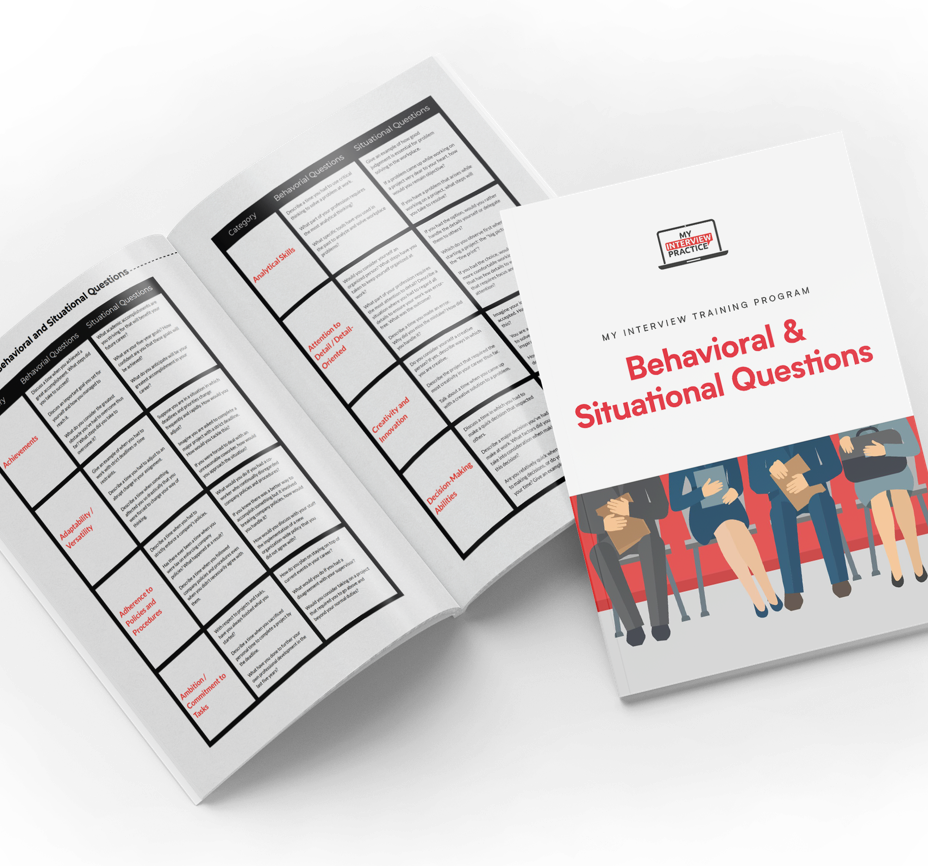How to Answer “What Are Your Salary Expectations?” in an Interview

Picture this: you’re in a job interview, skillfully navigating a maze of questions like a seasoned pro. You’re feeling good, maybe even invincible. Then, like the final boss in a video game, the question pops up out of nowhere, “What are your salary expectations?”
This can feel like a pivotal moment. Answer with a number that’s too low, and you risk undervaluing your worth and settling for less than you deserve. Go too high, and you might price yourself out of your dream job. Sidestep the question, and you could leave your potential employer questioning your transparency or even your confidence.
So, how do you answer this salary expectations question?
We’ve got you covered. In this comprehensive guide, we will dissect this question from all angles, giving you the tactics and confidence to hit it out of the park.
Whether you’re a fresh graduate stepping into the job market for the first time or a seasoned professional looking to make a career move, this article aims to provide you with the strategies, tips, and examples you need to answer the salary expectations question like a pro. So, let’s dive in!
Why Employers Ask the Salary Expectations Question
Before we tackle how to answer the question, it’s essential to understand why interviewers pose this query in the first place. Employers are not just trying to put you on the spot for fun (well, mostly). Below are some of the primary reasons they will ask you about your salary expectations.
Screening Candidates
Recruiters often use this question as a way to filter out candidates who might be expecting a salary that falls outside the company’s budget. Knowing this can help you strategically position your answer.
Budget Considerations
Businesses have budgets, and they need to make sure that bringing you on board aligns with their financial projections. Your salary expectations give them a benchmark for fitting you into the grand fiscal plan.
Assessing Value Perception
How you answer this question can tell employers a lot about how you perceive your skills and experience. Asking for a salary that’s too low might make you seem under-confident or unaware of your market value. On the flip side, an exaggerated figure may signal that you’re out of touch with industry norms.
Why the Salary Expectations Question Is Challenging
Feeling the pressure yet? Well, that’s completely normal. Here’s why answering this question can be a real brain teaser.
The Fear of Underestimating Your Worth
Nobody wants to undervalue themselves. There’s always the fear that if you aim too low, you’ll be stuck with a disappointing salary. And let’s not forget, a lowball number could actually make recruiters question your professional caliber. Yikes!
The Risk of Overestimating and Losing the Opportunity
On the flip side, shoot for a figure that’s sky high, and you may just price yourself out of a fantastic opportunity. This is especially tricky for those who are switching industries or roles where salary benchmarks may differ.
The Potential Awkwardness of Discussing Money
Discussing money can feel a bit taboo, especially in a formal setting like a job interview. Social norms often deter us from talking openly about financial matters, even when it’s a necessary part of the process.
Remember, practice makes perfect! With My Interview Practice, you can simulate realistic interviews, record your answers, and refine your approach to nail this and any other tricky interview questions. So, let’s equip you with the tools to not just answer the question but to own it.
What to Research for the Salary Expectations Question

Example of Googling. (via Tenor)
Before you even step foot into that interview room, you’ll want to have done your homework. Yes, your research extends beyond the company’s culture and mission—salaries are on the study guide too!
Know the Industry Standards
Don’t go into this blind; arm yourself with information. Websites like Glassdoor, Payscale, and industry-specific forums can offer a wealth of salary benchmarks. Knowing what others in similar roles are earning will give you a more grounded sense of what to aim for. Keep in mind, these are just guidelines, not gospel.
Know the Company
Every company has its own salary structure which is influenced by factors such as size, reputation, and location. A startup might offer less in terms of base salary but make up for it with stock options and a flexible work environment. On the other hand, a well-established corporation might offer a higher salary but less room for rapid advancement. Align your expectations with the kind of company you’re interviewing with.
Know Your Worth
How many years of experience do you have? What unique skills do you bring to the table? Maybe you’re a marketing whiz with a knack for data analytics, or perhaps you’re a project manager who’s a pro at Agile methodologies. Your unique blend of experience and skills has a market value. Understand it so you can articulate it.
Timing Is Everything
You could be asked about your salary expectations at any stage—during initial phone screens, midway through a series of interviews, or sometimes, on the application itself. While conventional wisdom might suggest waiting for the potential employer to bring it up, there are also strategic moments when you might want to take the initiative yourself. The key is to read the room. If you’re discussing future roles, responsibilities, and projects, that could be a natural segue into the salary conversation.
Strategies for Providing a Salary Expectations Answer

via Tenor
So, how exactly do you answer this crucial question? There isn’t a one-size-fits-all response, but there are several approaches you can take, depending on the situation.
The Open Strategy
If you’re open to negotiation and want to avoid locking yourself into a specific figure too soon, you can offer a broad salary range. Make sure the lower end is something you’d actually be happy with, not a lowball figure you might later regret.
The Specific Strategy
If you’ve done your homework and know exactly what you’re worth, you might decide to provide a specific salary expectation. This approach works best when you’re confident that your expectations align closely with industry and company norms.
The Deferral Strategy
Another tactic is to defer answering until a job offer is on the table. You might say, “I’d like to better understand the full scope of the role and responsibilities before discussing salary.” While this keeps your options open, some employers may press for a ballpark figure.
The Role of Benefits and Perks
Don’t forget, salary isn’t the only component of your compensation package. Benefits and perks play a critical role and can sometimes be a deal-breaker or maker.
How They Factor Into Your Salary Expectation
Whether it’s health insurance, retirement plans, or flexible working hours, these extras have real monetary value. When considering your salary range, think about the entire package. For instance, a higher salary with no benefits might not be as attractive as a slightly lower salary bundled with excellent perks.
Negotiating Beyond the Base Salary
If the employer can’t meet your salary expectations, benefits can be a great negotiating point. Maybe they can offer work-from-home days, additional vacation days, or even professional development courses as part of the package.
Phrases to Avoid When Addressing Salary Expectations

Maybe a tad aggressive. (via Tenor)
While you’re gearing up to tackle this question head-on, there are some phrases that can weaken your position. Knowing what NOT to say is as important as knowing what to say.
Statements That Can Weaken Your Negotiation Power
Avoid phrases like, “I’m flexible on salary,” or “I’m really not sure what to ask for.” These statements make it seem like you haven’t done your research or, worse, that you’re desperate.
Words That Can Close Doors for Further Discussion
Avoid setting ultimatums unless you’re absolutely sure. Phrases like, “I won’t work for less than X amount,” can halt negotiations before they even start.
Phrases to Use When Addressing Salary Expectations
Conversely, there are phrases that can strengthen your negotiation position while keeping the conversation open and amicable.
Statements That Show You’ve Done Your Research
Utilize language that demonstrates your market awareness. Phrases like, “Based on my research and experience, I would expect a salary in the range of X to Y,” can be incredibly effective.
Phrases That Keep the Discussion Open-Ended
You can always use language that leaves room for further discussion, such as, “I’m looking for a range between X and Y but am open to discussing the entire compensation package.”
More Do’s and Don’ts For Answering “What Are Your Salary Expectations?”
As we near the finish line, let’s sum up some critical do’s and don’ts for discussing salary expectations in an interview.
Do’s
Keep a Positive Tone
Even if the discussion gets a bit tense or veers away from what you anticipated, maintain a positive and professional demeanor. Your attitude during this conversation sets the stage for future interactions.
Be Realistic but Also Aspirational
While it’s crucial to stay grounded, don’t be afraid to aim a bit higher than what you think is the baseline. Companies often expect a bit of negotiation, so don’t sell yourself short right out of the gate.
Don’ts
Don’t Apologize
This conversation is a standard part of the job interview process. There’s no need to apologize for discussing something as crucial as your livelihood.
Don’t Underestimate Your Worth
Your skills, experience, and potential value to the company are all bargaining chips. Use them wisely, but use them.
In any job interview, the question about salary expectations is not just a hurdle but an opportunity—an opportunity to demonstrate your market awareness, your value, and your negotiation skills. With thorough research, thoughtful timing, strategic phrasing, and a keen sense of your own worth, you can navigate this conversation with finesse and confidence.
FAQs
Is it okay to ask for time to consider the salary offer?
Absolutely. Taking time to consider a salary offer shows you’re thoughtful and prudent. Just make sure to set a specific timeframe for your response.
How often should I negotiate my salary expectations during my career?
Career experts generally recommend negotiating salary every time you receive a new job offer or during performance reviews, depending on your company’s structure and norms.
What if the recruiter insists on a specific number?
In cases where the recruiter needs a number to move forward, it’s best to offer a reasonable range based on your research and understanding of the role.
The key to nailing your interview – practice, practice, practice.
As with anything, practice makes perfect. The most common ways to practice are with in-person mock interviews or a list of questions. While these options are a great place to start, they can leave a lot to be desired.
Practicing with In-Person Mock Interviews and Question Lists
One way to get valuable interview practice is to set up in-person mock interviews. Unfortunately, they can be somewhat inconvenient. You have to find someone to conduct the mock interview, and schedule a meeting every time you want to practice.
Question lists offer a much more convenient way to practice interviewing. Unfortunately, they do little to recreate actual interview pressure. In a real interview you’ll never know what’s going to be asked and this is exactly what can make interviews so stressful.
Interview Simulators – The best of both worlds.
With interview simulators, you can take realistic mock interviews on your own, from anywhere.
My Interview Practice offers a dynamic simulator that generates unique questions every time you practice, ensuring you're always prepared for the unexpected. Our AI-powered system can create tailored interviews for any job title or position. Simply upload your resume and a job description, and you'll receive custom-curated questions relevant to your specific role and industry. Each question is crafted based on real-world professional insights, providing an authentic interview experience. Practice as many times as you need to build your confidence and ace your next interview.
| List of Questions |
In-Person Mock Interview |
My Interview Practice Simulator |
|
|---|---|---|---|
| Questions Unknown Like Real Interviews | |||
| Curated Questions Chosen Just for You | |||
| No Research Required | |||
| Share Your Practice Interview | |||
| Do It Yourself | |||
| Go At Your Own Pace | |||
| Approachable |
Our interview simulator uses video to record your responses, and recreates the pressure you would feel in a real interview. This also allows your to see how you perform and perfect your responses. You can then share your responses with colleagues and mentors so that you can get valuable feedback.
Get the free training guide.
See the most common questions in every category assessed by employers and be ready for anything.
Get the Guide




